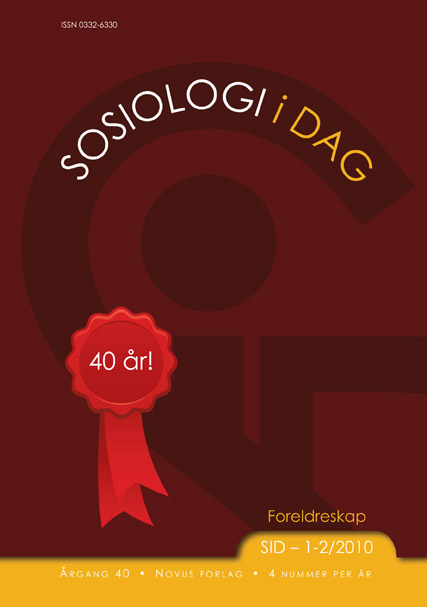Abstract
Denne artikkelen tar utgangspunkt i kritikken av den mannlige forsørgermodellen slik den ble formulert i den tidlige norske familieforskningen og Erik Grønseths radikale modell for deling av forsørgeransvar og omsorg. Disse ideene ble prøvd ut i et eksperimentelt forskningsprosjekt der ektepar arbeidet deltid og delte på å stelle hjemme tidlig på 1970-tallet, en periode der norsk familiepolitikk var i sin utforming. Til tross for prosjektets ambisjon om å påvirke politikken, fikk arbeidsdelingsmodellen ikke gjennomslag i politikkutformingen, og deling av det betalte arbeidet og reduksjon av arbeidstiden ble ikke noe viktig element i likestillingspolitikken. Tvert om, hevder denne artikkelen, har likestillingspolitikken krympet fra et bredt prosjekt om deling av det betalte og ubetalte arbeidet, til et snevert fokus på deling av permisjon.Authors who publish with this journal agree to the following terms:
Â
- Authors retain copyright and grant the journal right of first publication, with the work 1 year after publication simultaneously licensed under a Creative Commons Attribution License that allows others to share the work with an acknowledgement of the work's authorship and initial publication in this journal.
- Authors are able to enter into separate, additional contractual arrangements for the non-exclusive distribution of the journal's published version of the work (e.g., post it to an institutional repository or publish it in a book), with an acknowledgement of its initial publication in this journal.
